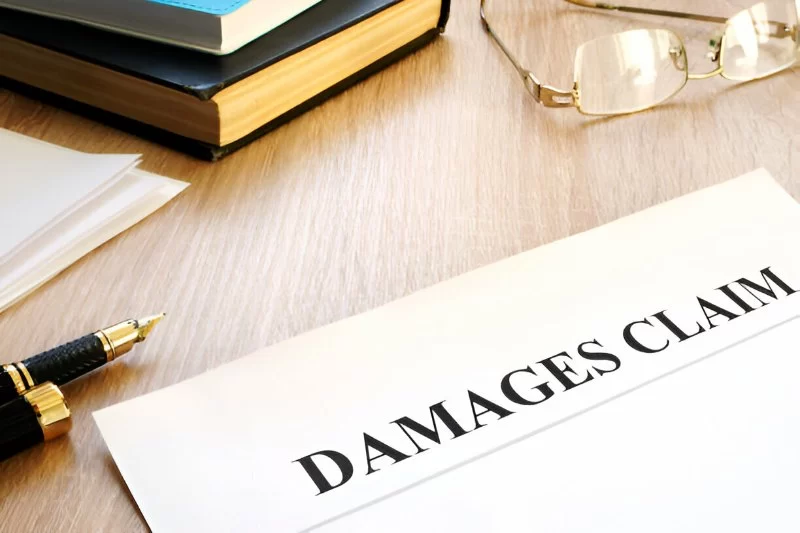- understanding-property-damage-claims
- immediate-steps-after-property-damage
- how-to-document-the-damage-effectively
- filing-the-property-damage-claim
- navigating-insurance-issues-and-denials
- when-to-seek-legal-help-and-why-it-matters
1. Understanding Property Damage Claims
Filing a property damage claim can feel overwhelming, especially in the aftermath of an unexpected incident like a car crash, storm, fire, or vandalism. At its core, a property damage claim is a formal request to your insurance provider to cover the cost of repairs or replacement for damaged property. It could involve real estate, vehicles, or even business-related assets.
Whether the damage was caused by nature, another person, or workplace negligence, knowing how to file a property damage claim properly ensures you're not left to absorb the financial burden alone. The process can be simple or complex — often depending on how well you're prepared.
2. Immediate Steps After Property Damage
2.1 Ensure Safety First
Before anything else, make sure the affected area is safe. For example, after a car accident, move to a secure location and seek medical help if needed. If your home was damaged by a storm, avoid downed power lines or structural weaknesses. Safety comes before paperwork.
2.2 Notify Relevant Authorities
In many cases — such as theft, vandalism, or traffic accidents — you'll need to report the incident to the police. A police report is often a requirement when you file a property damage claim with your insurer. It serves as official documentation and strengthens your case.
2.3 Contact Your Insurance Company
Don’t delay in notifying your insurance provider. Most policies have time-sensitive clauses that require prompt reporting. The sooner you start the process, the smoother it will go — especially when the insurer begins their investigation or sends an adjuster.
3. How to Document the Damage Effectively
3.1 Gather Visual Evidence
Take clear, well-lit photos and videos of the damage from multiple angles. Include close-ups and wide shots. If the damage occurred over time (like a slow leak), try to show the progression. Don’t clean up too soon — insurers want to see the damage in its raw form.
3.2 Keep Receipts and Records
Save all receipts for temporary repairs or replacements. For example, if your window is shattered in a storm and you hire an emergency board-up service, keep the invoice. Also, retain records of any correspondence with contractors or witnesses.
3.3 Write a Personal Statement
It might seem unnecessary, but a written statement explaining what happened in your own words can be helpful — especially if there's a dispute later. It adds context to the photos and receipts and shows your involvement and attention to detail.
4. Filing the Property Damage Claim
4.1 Know What Your Policy Covers
Insurance policies can be tricky to decipher. Understand what types of damage are covered, what your deductible is, and what exclusions apply. Homeowner’s policies often exclude flood damage unless you’ve added it separately. Vehicle policies may only cover collision damage if you selected that option.
4.2 Submit a Detailed Claim
Use your insurer’s portal or claim form to submit your documents. Include all visuals, receipts, police reports, and your personal statement. Be honest and thorough — inconsistencies can delay approval or even lead to denial.
4.3 Cooperate With the Adjuster
After you file a property damage claim, the insurance company will likely send an adjuster to inspect the damage. Be available to walk them through the site and provide extra context. This is your opportunity to clarify details and advocate for yourself.
5. Navigating Insurance Issues and Denials
5.1 Common Reasons Claims Get Denied
Insurance companies may deny claims due to late reporting, inadequate documentation, or coverage exclusions. Others may argue that the damage was pre-existing or not caused by the event described. Sometimes, it’s just red tape — and that's when persistence pays off.
5.2 Appeal the Decision
If your claim is denied or underpaid, you have the right to appeal. Review the denial letter carefully, gather more supporting evidence, and consider requesting a second inspection. Having legal support during this stage can greatly increase your chances of success.
5.3 Avoiding Future Conflicts
After dealing with a claim, many homeowners and drivers choose to reassess their policies. Make sure your coverage matches your needs — whether it’s for high-value electronics, rare property features, or regional risks like hail or wildfires in Texas.
6. When to Seek Legal Help and Why It Matters
6.1 Real Case: Denied Coverage After Tornado Damage
A property owner in Waco, Texas had their roof torn off during a storm. Despite timely filing, the insurance company only offered partial payment, citing “wear and tear.” The owner turned to Central Texas Employment Lawyers, who specialize in insurance-related legal disputes. With professional help, they secured full compensation through negotiations — without going to court.
6.2 How Lawyers Can Assist
Filing a property damage claim seems straightforward — until it’s not. Lawyers can help interpret your policy, prepare a strong case, challenge wrongful denials, and negotiate on your behalf. Especially when significant property or income is at stake, legal expertise is not a luxury — it’s a necessity.
6.3 Your Trusted Resource in Texas
If you’re in Central Texas and need guidance on a complex property damage case, Central Texas Employment Lawyers can help you navigate the process and protect your rights. Whether it’s reviewing your policy or dealing with a reluctant insurer, they bring clarity and confidence to the claims process.




